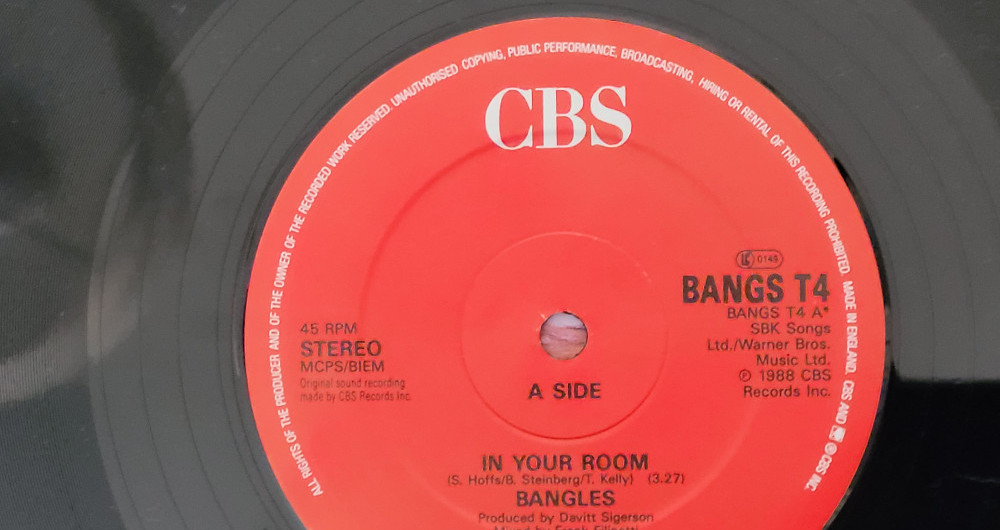
In this, the second article on the world’s largest record labels, I am going to tell you about Sony Music.
First, let’s roll back to 1975 with the launch of the Sony Corporation’s new video machine, known as Betmax. You might think this is slightly incongruous, but please bear with me.
As a concept, it was an attempt to provide a more affordable version of Sony’s U-matic home recording system. There was no other commercially available machine designed for recording TV programs. There was perhaps one tiny snag in that the Betamax tapes only had a recording capacity of one hour.
This was no sweat though, if you wanted to record something that lasted longer than an hour, simply change out your completed tape and start another one running.
VHS. Future behemoth
However, in 1977 there came to the market another home video system. Known as VHS, this new tape technology was marketed by Sony’s rival, JVC. It had a couple of major advantages over the Betamax system.
Firstly, it was vastly cheaper to buy, both in terms of hardware and the tapes. Secondly, VHS tapes had a much longer recording capacity – a minimum of 2 hours which could be doubled if the LP setting were selected.
Thirdly, as time progressed, there was a much greater range of titles available as prerecorded tapes on the VHS system than Betamax. By 1988, Sony had admitted defeat and began to manufacture VHS machines.
Never again
Perhaps stung by the experience with Betamax, when they were launching their new music playing system, the compact disc (CD), it seems likely they had decided that they would not again be caught out with a lack of software to be played on their new hardware.
Sony’s official history has it that “For [Sony founder Akio] Morita and [President of Sony Corporation, Norio] Ohga, acquiring CBS Records (sic) and Columbia Pictures meant the fulfilment of the Sony Group’s ultimate strategy: to secure high-quality software in order to complement and promote Sony’s wealth of hardware products.”
*Historical note: (Outside of the US and Canada, Columbia Records was known as CBS Records)
In fact, digging a little deeper, we see that in the late 1960s, Sony was involved in a joint venture with CBS Records which operated in Japan only. To this day, Sony Music Entertainment (Japan) and Sony Music Entertainment are separate companies, albeit both as part of the Sony Group Corporation.
In 1987, Sony bought Columbia Records, thus firing the starting gun in the race to the creation of Sony Music Entertainment in 1991.
Origins of Columbia Records
Let’s go back to the origins of Columbia Records to delve a little deeper into the company’s history.
In 1929, the American Record Corporation (ARC) was formed as the result of the merger of a number of record companies, notably the Cameo Record Corporation and the Plaza Music Company. In 1938, the Columbia Broadcasting System acquired ARC and in 1947, the Columbia Recording Corporation was renamed as Columbia Records.
New technology – the LP
In the years after the Great Depression, Columbia’s great rival was RCA Victor. Under the leadership of Edward Wallerstein, and in direct competition to RCA Victor, Columbia Records introduced the LP record in 1948.
The LP was especially well suited to longer orchestral pieces. At this time, Columbia Records featured the New York Philharmonic and the Royal Philharmonic. Columbia were real trailblazers around the end of the 1940s and their new format was picked up by Capitol Records who began to offer recordings on the new format.
In a foretaste of the VHS versus Betamax format war, RCA and Columbia had, for a short while, indulged in a format war of their own as RCA’s 45 rpm 7-inch system had briefly fought Columbia’s 33⅓ rpm 12-inch system before they had found living together more beneficial than fighting.
1950s and 60s
Moving into the 1950s and Columbia Records launched Epic Records (1953) and Date Records (1958). At this time, Epic was famous as the home of artists such as Roy Hamilton, Bobby Vinton, Tammy Wynette, the Yardbirds, Lulu, and Jeff Beck.
Columbia Records itself seemed to pass over pop music in favour of orchestral music, big band recordings, film soundtrack records and Broadway show recordings. Primarily this was due to the personal tastes of the Head of A&R Mitch Miller. Amongst many other things, Miller was a choral conductor and was famously anti-Rock ‘n’ Roll.
He defined Columbia’s style in the fifties and early sixties. Instead of the Rock ‘n’ Rollers, he championed crooners such as Johnnie Ray, Percy Faith, Ray Conniff and Tony Bennett amongst others. As if proving his anti-Rock ‘n’ Roll credentials, Miller passed up on three of the biggest stars. Elvis Presley was signed by RCA Victor on November 20, 1955. Buddy Holly was signed to Decca and The Beatles ultimately signed to Capitol Records in the US. That said, he did sign Johnny Cash and Carl Perkins.
He signed Frankie Laine from rival label Mercury and also discovered Aretha Franklin, signing her to her first major recording contract. She left Columbia after five years, lured by the prospect of being better promoted by Atlantic Records. He was also influential in the careers of artists who were already on the label such as Doris Day.
Miller reminds me very much of Second Lieutenant Steven Hauk in Good Morning Vietnam, who as well as playing his Ray Conniff featurette famously asked of Adrian Cronauer, “And who gave anyone permission to program modern music?”
Miller retired in 1965. Clive Davis, who took over in 1967 as President of Columbia built upon the label’s stable of ‘rock’ musicians, which, although it included Bob Dylan and Simon & Garfunkel, was very small. Hence, Janis Joplin was signed to Columbia following Davis’s visit to the Monterey Pop Festival and Leonard Cohen’s first album was released on Columbia Records in 1967.
1970s
Moving into the seventies and Epic had added the likes of ABBA (although they were on Atlantic Records in the US), Boston, the Clash, Charlie Daniels, Heart, the Isley Brothers, the Jacksons, Meat Loaf, Johnny Nash, REO Speedwagon, and many others.
By the 1980s, and beyond, Epic had added Michael Jackson, Culture Club, the Miami Sound Machine and Gloria Estefan, Wham! and George Michael, Europe, Cyndi Lauper, Teena Marie, Ozzy Osbourne, Korn, Pearl Jam, Sade, Luther Vandross, Rage Against the Machine, and Céline Dion to their roster.
1980s and beyond
As we moved beyond the 1980s and into the new millennium, CDs overtook vinyl as the predominant medium for listening to music in the home. With streaming services just around the corner as progress towards the digital age accelerated, Sony Music Entertainment along with Warner Music Group and Universal Music Group consolidated their position as the three monoliths of modern music. All three eventually struck deals with streaming services to make their content available.

Sony Corporation of America acquired BMG from Bertelsmann in 2008. This followed on from a four-year period in which the pair had shared a fifty-fifty joint venture known as Sony/BMG. This saw many artists with many musical styles become part of the Sony family as the new group owned such labels as Columbia, Epic, RCA Records and Arista. Fifty years plus after being passed over by Mitch Miller, Elvis was part of ‘Columbia’.
There are other tales of all-things-lead-to-Sony-Music. Arista Records was founded by Clive Davis following his departure from Columbia in 1974.
Furthermore, RCA Records was a successor to the Victor Talking Machine Company which had been founded by Emil Berliner in 1901 along with Eldridge R. Johnson. Berliner was instrumental in the use of flat discs as a recording medium as opposed to vertical cylinders way back in the earliest days of sound recording.
If you have enjoyed this article or have anything you would like to add to the debate, please leave me a comment below.

This is a fascinating journey through the history of Sony Music and its connections to various developments in the music industry. I never realized that Sony’s involvement in different technologies like Betamax and CD players played a role in their strategy for music as well.
I’m curious, though, how did Sony’s early involvement in joint ventures with CBS Records in Japan impact their global music expansion? Did this initial collaboration provide them with valuable insights for later acquisitions like Columbia Records?
Looking forward to hearing more about Sony Music’s history and its impact on the music industry!
Hi Hanna, and thanks for your comment.
Sony knew they could do business with Columbia/CBS throughout the period from the signing of the JV in 1968. It was a natural fit for them therefore, when they made the decision to acquire ‘software’ producers in the wake of the Betamax debacle.
Simon